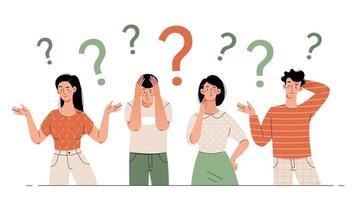You would never believe who showed up in the tavern. Well, it was none other than Madame Skisener. Yes, that Madame Skisener, owner of the biggest publishing house around these parts. She came, and we had a jolly time conversing and she also shared some stuff with me and I really had to share them with you. This is some of what she shared as her biggest problems when she reads fantasy work.
I don't know if you can tell but I write blog post that are on the shorter side. Why? Because I get pretty intimidated when I see blogs with a lot of words on a page and find it hard to read them.So I am going to do this post and more in the future in a way I like (short) in parts.
1) Head Hopping
Sarah was irritated at the three girls cornering her.
"Get out of my way, I need to go to class."she says, their behaviour drives one mad.
The leader of the girls, Andreen, frowns. 'How dare she speak to me like this, nobody in this town should ever treat me like this.' She puffed up her chest and walked closer to her. She wanted to see her shake and shrivel in fear.
Let's look at this paragraph written in third person. At first we are reading from Sarah's perspective and seeing her thoughts and we are experiencing her feelings, but then suddenly we switch to Andreen's thoughts where we see inside her head.Head hopping can often be mistaken with an omniscient third person point of view but it(head-hopping) feels jarring when it is noticed.
My example isn't the greatest so I recommend you go read a bit more on this topic(after finishing reading my post of course)
The lines 'their behaviour drives one mad' and 'she wanted to see her shake and shrivel in fear' both express the internal feelings and thoughts of both the characters, rather than just the narrator's voice.
Now not all writers and readers have a problem with head hopping and it was only recently I noticed it myself in my book and in some books I enjoy reading online.But try to shift the perspective of the one speaking only when it is a new paragraph better yet when the scene changes, a new action is being carried out or it's a new chapter all together.
I still mess up on this tip myself and when I truly noticed the problem with it(head-hopping) is when I read my work aloud or used something to read it out to me when I want to give it a final check. It gives a sense of whiplash when someone who isn't even the main character takes center stage while we are still in the same paragraph and scene that was expressing the main character's innermost thoughts. The sense of closeness that's built as we focus on one character and see inside their mind can be lost if the scene switches to another person's point of view and it is done poorly.
So then...
My tip (and this is how I am actually trying to combat this) is to stick to one character's point of view for a paragraph.Or even, I would recommend you focus on one point of view per chapter if you can and it works for your story. Reread your story and see if you are letting a character's voice leak into your narrative voice. Meaning you are telling the story in third person but parts of your narrator lines sound like that of the protagonist or another character (Well, of course, if it's your protagonist who is the narrator, like they are telling a story of their past I guess it makes sense if their voice and personality is there). Try reading your story aloud and see if it flows coherently(This worked for me, especially with grammar and spelling errors 10/10 recommend).
In conclusion, head-hopping from the mind and perspective of one character to the next, though not always noticed, can cause a feeling of whiplash for the reader or causes them to lose the feeling of closeness they felt with a character as they got immersed in that character's thoughts and emotions just to be pulled out of it mid paragraph or scene to the thoughts of another character.
What are your thoughts on this?
Do you think there is any issue with head-hopping?
Or maybe a point you thought I missed?
Leave your comments and let me know.



Comments
Post a Comment